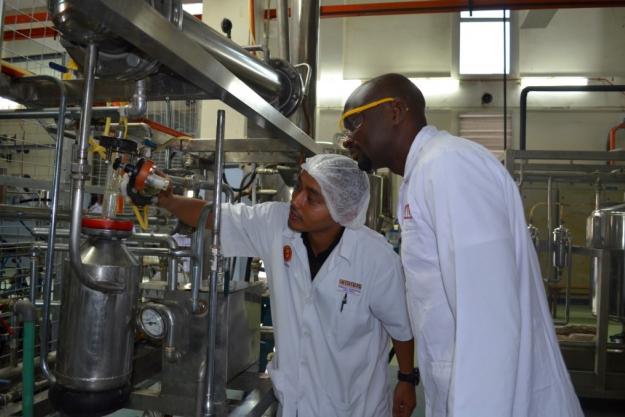
Attendees of the Natural Products Chemistry Training and Development Programme. Photo credit: The Institute of Bio-Product Development, University of Technology, Malaysia.
Seventeen chemists from three continents were given the opportunity to upgrade their skills in advanced analytical techniques of natural products in a course supported by the Organisation for the Prohibition of Chemical Weapons (OPCW), held at the University of Technology, Johor Darul Ta’zim, Malaysia, from 25 July – 10 August 2016.
Already in its fifth year, this intensive programme promotes the peaceful uses of chemistry and the implementation of the Chemical Weapons Convention, with special attention given to plant-based prohibited chemicals. The project encourages developing nations to utilise their natural resources by enhancing their chemists’ ability to turn them into high-value bioproducts.
During the training chemists working in industry, academic institutions and government laboratories learned about the various toxic properties of natural products as well as methods of extraction, separation and purification. In addition to this, they mastered the latest practices in developing safe and sustainable natural products on an industrial scale.
One of the participants noted: “The training exposed us to a great deal of knowledge. I enjoyed the course’s practical aspects – we were given problems to solve and proposals to put together. On my return, I want to share what I have learned with my colleagues”.
The OPCW co-organised this training with the Institute of Bio-product Development of Malaysia’s University of Technology. Attendees represented 17 of OPCW’s Member States, including Algeria, Cameroon, Costa Rica, Democratic Republic of Congo, Iraq, Kenya, Malaysia, Nepal, Nigeria, Oman, Pakistan, Philippines, Sri Lanka, Sudan, Tunisia, Uganda and Zimbabwe.
To date, 80 professionals from more than 20 countries have benefited from this training programme.
